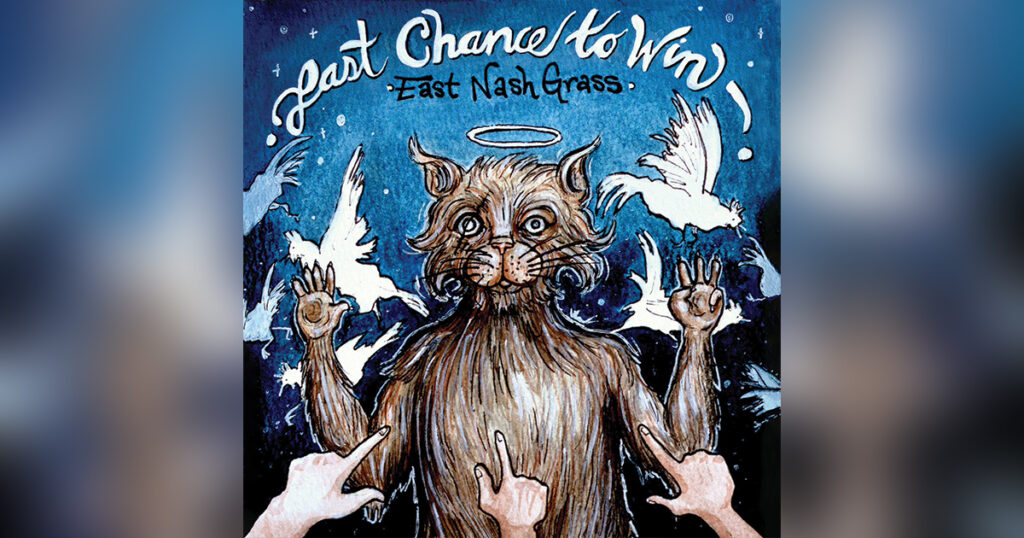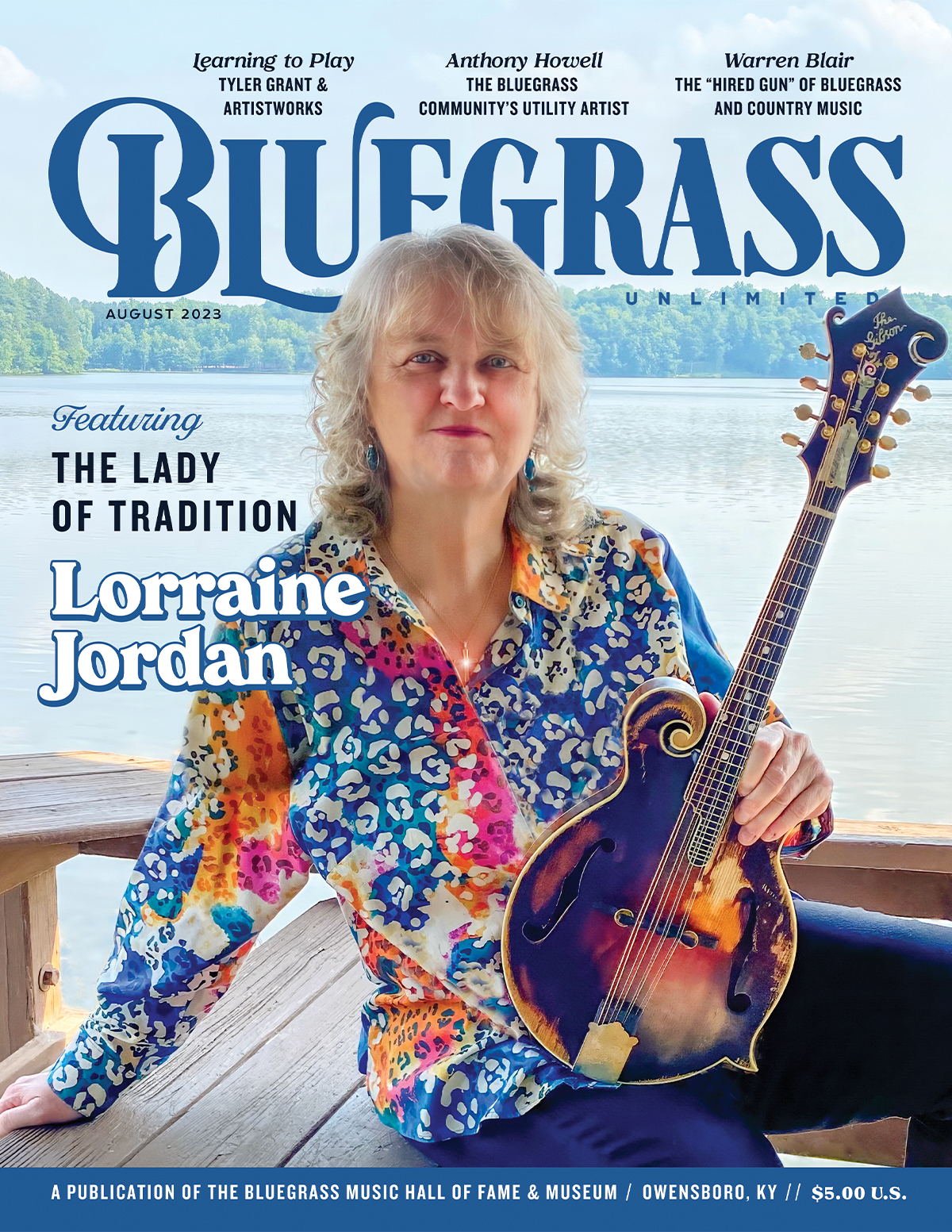Last Chance To Win
This is the second album from one of the most exciting new ensembles on the scene. For starters, the members are all highly accomplished instrumentalists and nearly all have served as sidemen for some of the biggest names in the business. On top of that, they are nearly all singers, which brings an impressive variety of vocal styles, as well as some rich and varied harmonies, to East Nash Grass’s sound.
This time around, the band has taken a noticeable swing in the old-timey/traditional direction. On the title track (written by Christian Ward) IBMA Award-winning mandolin player Harry Clark delivers a delightfully retro lead vocal that’s passingly reminiscent of Grandpa Jones.
“Railroadin’ & Gamblin’” is a rousing reprise of an Uncle Dave Macon oldie on which Dobro player Gavin Largent serves up the playful, cascading lyrics with comic intensity as the band provides a churning acoustic wall of sound.
Clark takes another adept turn on “Papa’s on the Rooftop,” a bluesy 1930s comic lament originally written and recorded by Leroy Carr. Once again, the band weighs in with a fast-paced, finely textured and exhilarating backdrop, including a cool slap-back bass interlude from Jeff Picker.
With Clark once again on lead vocals, the band infuses “Starlet Iris,” a Clark original, with similar old-timey magic. On the more contemporary side, guitarist James Kee serves up an assured honky-tonk-flavored lead on the Bill Anderson classic, “Love Slippin’ Away.” Kee is every bit as soulful on the despairing “How Could I Love Her So Much,” a Hugh Moffett composition with a wistful “Gentle on my Mind” vibe to it.
IBMA Award-winning fiddler Maddie Denton takes her turn on lead with the yearning “When You Come Home” (penned by Theo Macmillan). Denton herself composed the high-octane instrumental “Jenna McGaugh.”
If time and space permitted, I could shower all the rest of the cuts with similar accolades. Bottom line: This is a deeply satisfying project from a band that seems destined for the long haul.

